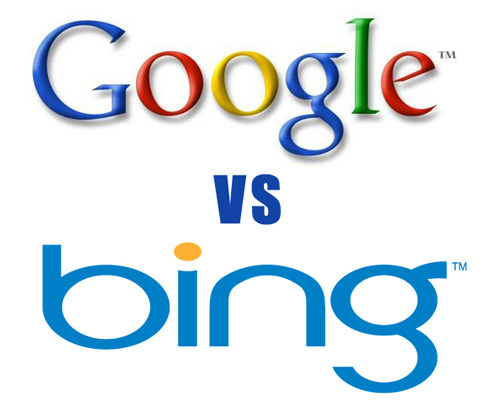How popular is Bing and how do its SEO ranking factors differ from Google?

We are only 4 months into 2011, but I don't think Microsoft and specifically the Bing team could have asked for a better start to the year!
Conversations about the search engine only seem to be heading in one direction, the same direction as the number of people using their service - up.
In a previous post this year I discussed how searches on Bing were increasing, well this trend has not changed. In recent posts on Mashable, bloggers are showing how, if current trends continue, Bing could well overtake Google in the US.
Summary of the current Bing trends
- Bing accounted for 30% of all searches in the US during March 2011
- In September 2010, Bing accounted 24% of searches
- If the same trend continues it would mean by Jan 2012 Bing would overtake Google in the USA as the most used search engine
This highlights an opportunity in my opinion. While I don't believe Bing will overtake Google in the near future, I do believe it will be a force in the industry that search marketers need to recognise and quickly!
Looking at your search strategy and ensuring it is both Bing and Google friendly will be a key consideration in the coming months. Getting ahead of the curve rather than waiting for it to become a problem would definitley be high on my agenda. The first thing to do before actioning any of the points below would be to check your traffic & rankings in Bing and compare these to Google, this will set a benchmark for you to monitor results as you progress.
Bing SEO ranking factors - the key differences
An analysis of the differences on SEOmoz covers this subject in great detail so I have summarised pointers for you:
- Bing still adds more weight to .gov - .edu - & .org inbound links
- Links are absolutely key to both Google & Bing, though the Bing spam filters do not appear to be as sophisticated as Google
- This doesn't mean you should operate separate link building for each search engine, its only a matter of time before Bing catch up in this area
- Tidy & short URL's tend to be preferred in Bing
- Your homepage is vital in Bing and likely ranked over most internal pages so ensure it is well optimised & converts / engages well
- Links from multiple domains are key to success (large numbers from single domains is frowned upon)
- Old & keyword rich domain names tend to do well
Although there are these differences in ranking factors, you can advise colleagues that separate stratgies aren't necessary. The SEOmoz analysis concludes:
- Google and Bing are remarkably similar - building two different sites/pages to separately target the two engines would appear to be a waste of energy
- Bing seems to be moving much closer to Google over time; although we didn't measure all of these results precisely last year, the similarity of the two has dramatically increased (of course, it's also possible that Google is getting more Bing-like, though this doesn't fit with our personal experiences)
It certainly appears that while Bing is enjoying some success it is still behind Google in various areas surrounding its ranking algorithm. Its anti spam & intelligence surrounding crawling websites & interpreting inbound links still has someway to go. Keep your search strategy consistent for both search engines, focus on:
- Making sure you have a clean & accessible website(s)
- Implementing natural link building techniques
- Ensuring your inbound links come from a variety of quality websites
- Staying clear of spammy websites & techniques
It would be great to hear your thoughts if you have had recent success or are struggling with Bing rankings, join in the conversation at our LinkedIn group >







